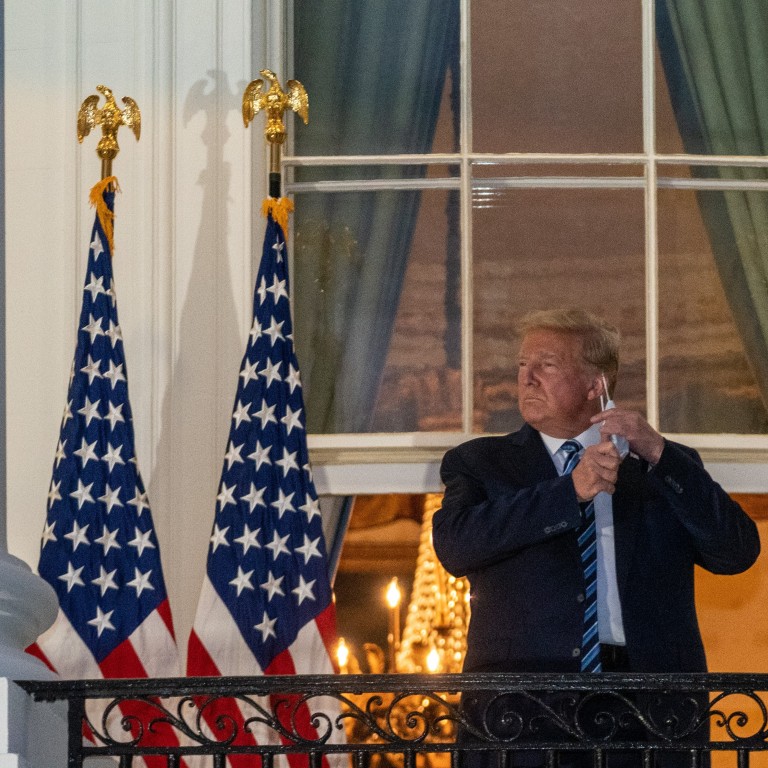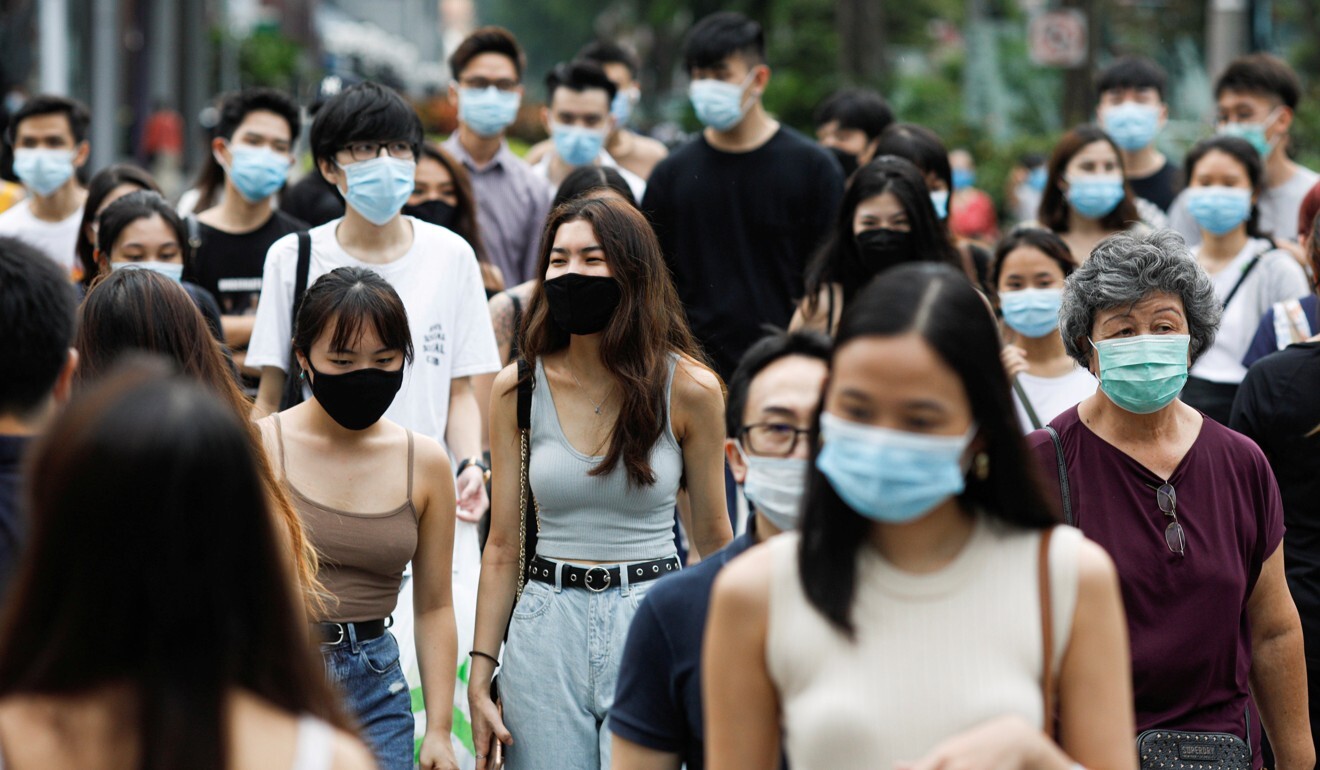
Trump’s Covid-19 antibody treatment was partly developed using Singaporean blood plasma
- One of the two antibodies used in an experimental treatment for the US President was developed using blood samples from three patients in Singapore
- The city state has been recruiting patients who have recovered from the coronavirus to donate blood
The science and technology publication noted that Trump had on Friday received a “high dose” of an experimental antibody therapy known as REGN-COV2 developed by American biotechnology company Regeneron.
What is antibody treatment and how can it help in coronavirus fight?
Trump received the antibody cocktail before he was admitted to the Walter Reed National Military Medical Center, and while he was there for three days, he was also given multiple doses of the antiviral drug, Remdesivir and a steroid dexamethasone, usually used to treat inflammation in people who have severe cases of Covid-19.
Trump was discharged from hospital on Monday evening and in a video released shortly after he was ensconced in the White House said he was feeling better.
Dr Jonathan Reiner, a professor of medicine at George Washington University, told CNN:
“The president might be the only patient on the planet ever to receive this particular combination of medicines.”

Indeed, REGN-COV2 has not received emergency use authorisation from the US Food and Drug Administration and the biotech firm said it had provided the drug in response to Trump’s doctors making a “compassionate use” request.
Asian Scientist Magazine said convalescent plasma from patients who had recovered from Covid-19 could be used to prevent or treat the disease but even with the US Food and Drug Administration authorising the emergency use of convalescent plasma, the difficulty of obtaining sufficient blood from volunteers meant it was not possible to use it at a large scale.
Instead, the Regeneron therapy clones antibodies from both “humanised” mice and recovered patients to produce a reliable source of monoclonal antibodies, reported the magazine.
Trump’s infection sparks worries in Asia – and a sarcastic headline
“While the humanised mice were based on a technology owned by Regeneron, the human plasma used was supplied through an agreement with Singapore’s National Centre for Infectious Diseases,” it added.
Reports of antibody treatments in the works emerged in June, with most of them in labs across Asia, including Singapore, Japan, China and South Korea. Scientists explained that the treatment works by harvesting specific antibodies – produced by the body to fight off diseases when an individual catches a virus – to trigger other parts of the immune system to attack the cells containing the toxin.
For Singapore, its defence research and development organisation DSO National Laboratories had announced in June that it had discovered five antibodies that could block the coronavirus and protect against key mutations, after scientists screened hundreds of thousands of cells that produce the antibodies.
The country’s government-linked biomedical sciences institute A*Star is working with Japanese pharmaceutical company Chugai Group separately on similar treatments.

Local media has also reported that the Singapore authorities have also been recruiting patients who have recovered from the coronavirus to donate blood for such purposes.
When news that Trump had received the treatment broke, some experts were concerned at why emergency use had been authorised even though the trials had not finished. Dr Jeremy Faust, a public health expert at Harvard, said it raised uncomfortable possibilities: either the president’s team had not understood the scientific process, or they had understood but were overridden by Trump on someone else’s advice.
“People will see this and they’ll think that this is the treatment you should have – and if you don’t give it to other people who have coronavirus that we’re denying them special treatment.
Why are Vietnamese big fans of Trump – both in the US and in Vietnam?
“In reality that’s not the case … we shouldn’t be treating the president as a guinea pig,” he told Agence France-Presse.
While Regeneron has not released detailed data from its clinical trial of 275 patients, it said it had seen “infusion reactions” in four patients, two on placebo and two on the drug, while “serious adverse events” occurred in two placebo patients and one on the drug. No one died.
The company did not detail what these side effects were, but Dr Arun Swaminath, a doctor at New York’s Lenox Hill Hospital, said that in general, mild reactions to IV-therapies include fevers, chills and fatigue. More serious symptoms include chest pain and shortness of breath.
Additional reporting by Agence France-Presse

